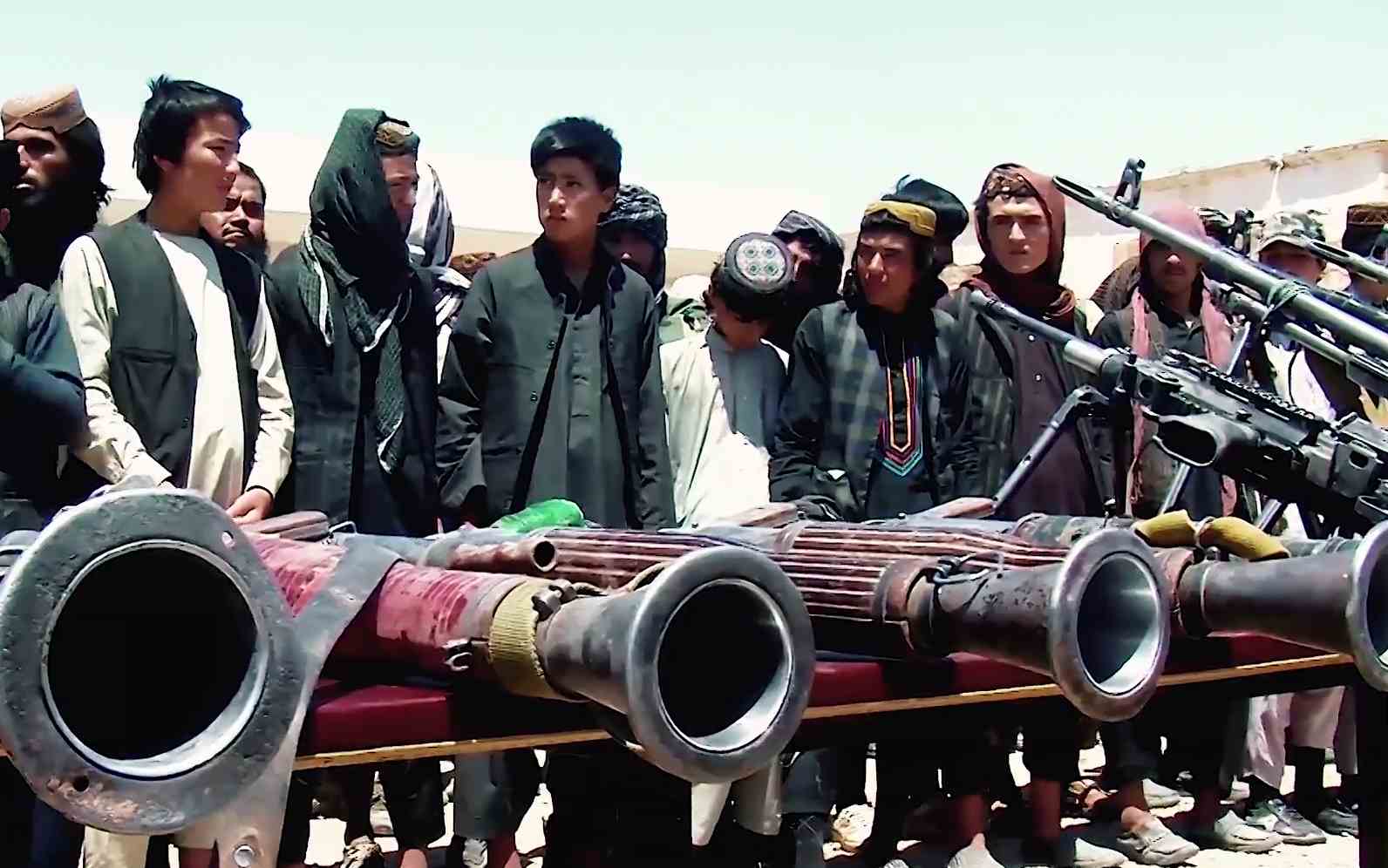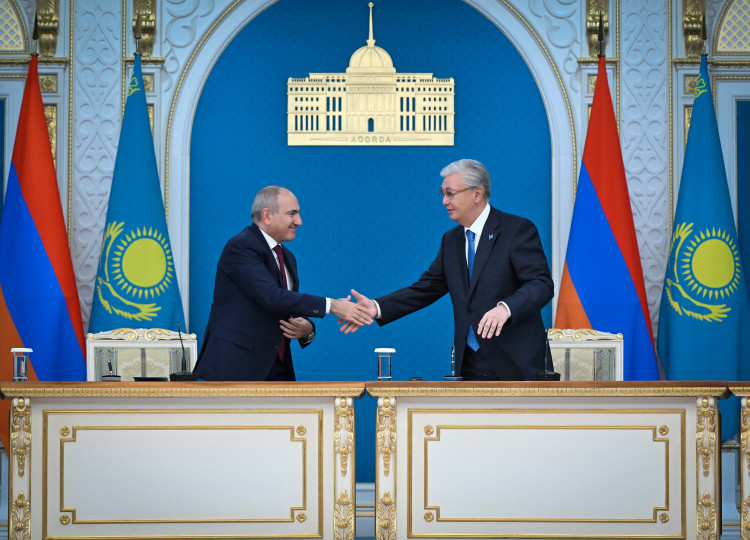
Rocket Attacks on Tajikistan and Uzbekistan Undermine Taliban Security Claims
Rocket Attacks on Tajikistan and Uzbekistan Undermine Taliban Security Claims
Since its seizure of power in August 2021, the Taliban has repeatedly asserted that it accomplished something the Ashraf Ghani administration could never do: provide nationwide security and eliminate regional transnational terror threats, the latter a topic of profound interest to Afghanistan’s neighbors, including China, Pakistan, Iran and the post-Soviet Central Asian states. From April to July 2022, Afghanistan-based militants fired rockets into both Tajikistan and Uzbekistan. While the governments involved initially downplayed the incidents, they highlighted the fact that the Taliban is currently unable or unwilling to address its neighbors’ security concerns, despite its repeated and bland assurances to the contrary.
In April 2022, Islamic State in Iraq and the Levant–Khorasan Province (ISIL-KP) militants claimed that they had fired missiles into Tajikistan and at military sites in Uzbekistan’s Surkhandarya border region, which both governments denied (Hronikatm.com, July 21). Similar attacks were reported in both May and June 2022, this time admitted to by both the Tajikistani and Uzbekistani governments.
In the most recent incident, Uzbekistan’s Ministry of Foreign Affairs reported that, on July 5, five shells were fired from Afghanistan at Termez in the Surkhandarya region (Kun.uz, July 5). This time, the Taliban belatedly chose to respond. On July 17, Taliban spokesman Zabiullah Mujahid said that Afghan government special forces had attacked an ISIL-KP cell in the Imam Sahib District of Kunduz Province; the named cell was allegedly responsible for rocketing Tajikistan and Uzbekistan (Interfax, July 17). Three ISIL-KP members were killed and five were captured in the raid (Ariana News, July 18).
The ISIL-KP first appeared in Afghanistan’s and Pakistan’s border areas in 2014–2015 and has been battling the Taliban’s ascendancy ever since. While both the ISIL-KP and Taliban seek to establish Islamic states in the areas under their control, stark ideological differences remain, particularly as the Taliban’s interests are confined to constructing its Islamic Emirate of Afghanistan. In contrast, the ISIL-KP is more interested in pursuing a global caliphate agenda alongside its Syria-based progenitor. The United Nations estimates that, since the Taliban takeover of Afghanistan in August 2021, 20 terrorist groups remain active in the country; of these, the ISIL-KP presents the most significant challenge to the new Taliban leadership (YouTube.com/ArianaNews, May 17)
On July 20, the UN Assistance Mission in Afghanistan (UNAMA) released its “Human Rights in Afghanistan: 15 August 2021–15 June 2022” report outlining Afghanistan’s human rights situation over the 10 months since the Taliban seized power. UNAMA’s key findings included: “2,106 civilian casualties (700 killed, 1,406 wounded) predominantly caused by improvised-explosive-device (IED) attacks attributed to the ISIL-KP and unexploded ordnance (UXO)” (Unama.unmissions.org, July 2022). Not surprisingly, Mujahid dismissed the report as “propaganda” (Tolonews.com, July 20).
The Taliban’s pledge to ensure Afghanistan is no longer used for terrorist operations is a key precondition for international recognition, on which it has failed to deliver. Along with broken promises on women’s rights, not a single foreign government has yet to recognize the Islamic Emirate. In the recent UNAMA report, the UN Secretary-General’s Special Representative for Afghanistan Deborah Lyons noted, “There must be more meaningful actions behind the Taliban’s promise to contain terrorist groups in Afghanistan. Since my previous briefing it appears that the de-facto authorities have attempted to constrain the Islamic State’s ability to carry out major attacks, and yet, small-scale attacks are still being carried out, particularly against religious minorities. The existence of numerous terrorist groups in Afghanistan remains a broad international and, especially, regional concern” (Unama.unmissions.org, January 26).
UNAMA’s insights have evidently been ignored the by Taliban leadership, particularly regarding their relations with Tajikistan. Far from attempting to reduce heightened tensions following the earlier ISIL-KP rocket attacks, the Taliban has intensified the potential for continued strife by allowing the creation of the Taliban Movement of Tajikistan (Tehreek-e Taliban Tajikistan, TTT), whose proclaimed goal is not only to unite Tajik immigrants under the Taliban’s banner but also to overthrow the secular regime in Dushanbe (Nezavisimaya gazeta, July 20).
The potential instability emanating from Afghanistan toward Tajikistan has sufficiently unsettled the international community. Russia, the United States and China have all offered assistance to upgrade Tajikistan’s border security along its border with the Islamic Emirate. Despite earlier repeated pious declarations from the Taliban that other nations need not fear terrorist attacks originating from Afghanistan, the recent ISIL-KP rocket attacks on Tajikistan and Uzbekistan, along with the Taliban’s apparent overt approval for the formation of the TTT, indicate that the security pronouncements have been the most recent in a long chain of Taliban lies.
Combined with the Taliban’s apparent lack of interest, or inability, to rein in the nearly two dozen terrorist groups freely roaming around Afghanistan, the international community at the very least can show its displeasure over Taliban lethargy in fulfilling its broken promises by withholding recognition and assistance for the Islamic Emirate. Accordingly, perhaps Taliban leadership might spend a little more time paying attention to useful foreign analysis for insights into their self-imposed predicament, starting with the UNAMA report.


